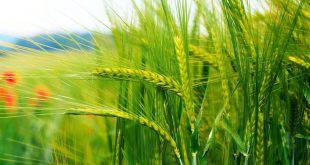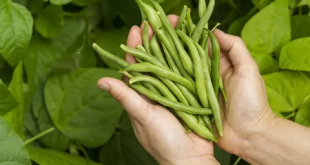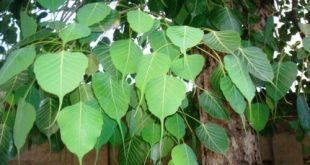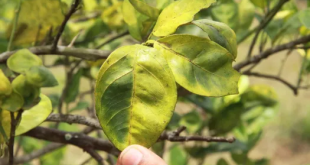Firstly, before you panic, it’s important to understand that appetite fluctuations in bearded dragons are normal in certain circumstances. Distinguishing between harmless behavioral changes and genuine health concerns is the first step toward helping your scaly companion. Let’s explore the possible reasons your bearded dragon isn’t eating and what steps you can take to restore their appetite.
Key Takeaways:
- Baby bearded dragons need daily food and can only survive a few days without eating.
- Juveniles can survive about a week without food but should eat regularly.
- Adults can go 2-4 weeks without food, or even 2 months during brumation.
- Stress, illness, dehydration, and improper temperatures can lead to appetite loss.
- Always monitor for signs of illness and ensure proper care to maintain health.
Top Reasons Your Bearded Dragon Might Stop Eating:
Here are the most common causes of appetite loss in bearded dragons, along with tips on how to address them:
1. Adjusting to a New Environment
If your bearded dragon is new to your home, it may lose its appetite due to stress from unfamiliar surroundings. Beardies thrive on routine and feel more comfortable in stable, predictable environments. Give your pet some time to adapt to its new home.
2. Environmental Changes
Even minor changes, such as new decorations in the tank or the addition of a new pet or family member, can cause stress. Noise, disruptions, or construction nearby can also impact their appetite. Try to maintain a calm and consistent environment for your dragon.
3. Improper Temperatures
Bearded dragons rely on temperature regulation for digestion and overall health. During the day, their basking area should be between 95–110°F, with the cooler side of the tank around 75°F. At night, temperatures should range between 65–75°F. If your dragon isn’t eating, double-check the tank’s temperature and lighting setup.
4. Shedding Skin
When bearded dragons are preparing to shed their skin, they often eat less. This temporary appetite loss is completely normal, and your dragon should return to eating once the shedding process is complete.
5. Growth Spurts
Young dragons may experience decreased appetite during growth spurts. If this is the case, their appetite should resume within a few days. Offer high-protein foods like dubia roaches to support their growth.
6. Overcrowding or Small Enclosures
Bearded dragons need ample space to move around comfortably. A cramped or cluttered tank—or sharing a tank with another dragon—can lead to stress and appetite loss. Ensure your dragon has a spacious, solitary enclosure.
7. Entering Brumation
Brumation, a hibernation-like state, is common in bearded dragons during certain times of the year. During this period, their metabolism slows down, and they may stop eating. This is a natural behavior, but it’s essential to prepare for brumation properly.
10. Illness or Parasites
Infections, impactions, or parasites can lead to appetite loss. Watch for symptoms like lethargy, weight loss, diarrhea, or bloating. If your bearded dragon refuses food for more than a week, seek a vet’s advice.
11. Improper Diet
A lack of variety or incorrect food choices may cause them to reject food. Ensure a balanced diet with insects (crickets, mealworms, dubia roaches) and fresh vegetables (collard greens, squash, bell peppers).
14. Dehydration
A lack of water can lead to appetite loss. Offer water through misting, soaking, or dripping it on their nose to encourage drinking.
Warning Signs to Watch For:
While occasional appetite loss is normal, keep an eye out for these red flags that could indicate a more serious problem:
1. Persistent Weight Loss
If your bearded dragon consistently loses weight over several weeks, it’s time to investigate further.
2. Lethargy
A lack of energy combined with appetite loss could signal an underlying health issue.
3. Abnormal Stool
Diarrhea, blood in the stool, or no stool at all may indicate a medical problem requiring a vet’s attention.
If you notice any of these symptoms, consult a reptile veterinarian as soon as possible.
How Long Can a Bearded Dragon Go Without Food?
Adult bearded dragons can often go weeks without eating, while juveniles need food more frequently. However, prolonged fasting is not ideal for their health. If your dragon hasn’t eaten in over two weeks, or if they’re showing signs of distress, contact your vet immediately.
1. Baby Bearded Dragons (0-3 Months)
Can survive 1-3 days without food.
Require daily feeding to support growth and development.
If a baby bearded dragon refuses food for more than a day, it could indicate a health issue.
2. Juvenile Bearded Dragons (3-12 Months)
Can survive up to 1 week, but should not go that long without food.
Need frequent protein intake to build muscle and maintain energy.
A loss of appetite for more than a few days should be monitored closely.
3. Adult Bearded Dragons (12+ Months)
Can survive 2-4 weeks without food in normal conditions.
Can go up to 2 months without food during brumation.
Hydration is key—bearded dragons can tolerate food loss better than water loss.
Important: Even though adult bearded dragons can survive for weeks without food, prolonged fasting outside of brumation can indicate stress, illness, or improper husbandry.
5 Proven Ways to Encourage Your Bearded Dragon to Eat:
1. Create the Perfect Environment
Ensure your dragon’s enclosure is clean, spacious, and set to the correct temperature. Keep their environment calm and free from disruptions.
2. Offer a Variety of Foods
Bearded dragons enjoy a diverse diet of vegetables, fruits, and insects. Experiment with different options to discover their preferences.
3. Optimize Feeding Conditions
Use a separate feeding enclosure to make mealtime stress-free and straightforward. Make food cut in appropriate sizes to avoid any choking.
4. Address Health Concerns
If parasites, infections, or other health issues are suspected, consult a vet promptly. Timely treatment can restore your dragon’s appetite.
5. Try Hand-Feeding
Gently hand-feed small pieces of food to encourage eating. If necessary, use a dropper to provide hydration by dripping water on their snout.
What Can You Do If Your Bearded Dragon Stops Eating?
When dealing with a bearded dragon’s appetite loss:
- Rule out health problems by observing their behavior and consulting a vet if necessary.
- Eliminate stressors in their environment.
- Be mindful of their life cycle and adapt your care accordingly.
With a little patience and care, your bearded dragon can return to its happy, healthy self.
Final Thoughts
A bearded dragon’s decreased appetite is often a temporary issue that can be resolved with the right adjustments. If you have tips or experiences to share about encouraging a bearded dragon to eat, we’d love to hear them in the comments below!
FAQs
1. Can my bearded dragon survive a month without eating?
Yes, adult bearded dragons can survive a month or longer without food, especially during brumation, but they should always have access to water.
2. What should I do if my bearded dragon hasn’t eaten for a week?
Check the habitat temperature, lighting, and hydration levels. If they show signs of illness, consult a reptile vet.
3. How often should I feed my bearded dragon?
Babies (0-3 months): 3-5 times a day
Juveniles (3-12 months): 2 times a day
Adults (12+ months): Once daily or every other day
4. Does brumation mean my bearded dragon is sick?
Not necessarily! Brumation is a natural process, but if weight loss is excessive or they seem unwell, seek veterinary advice.
5. Can dehydration cause appetite loss in bearded dragons?
Yes! Bearded dragons need proper hydration. Offer fresh greens, mist their skin, or provide water droplets to encourage drinking.
Bearded dragons can go without food for different lengths of time depending on age and health. Monitoring their behavior, adjusting their habitat, and providing proper care will keep them happy and healthy. If in doubt, always seek professional veterinary guidance!



